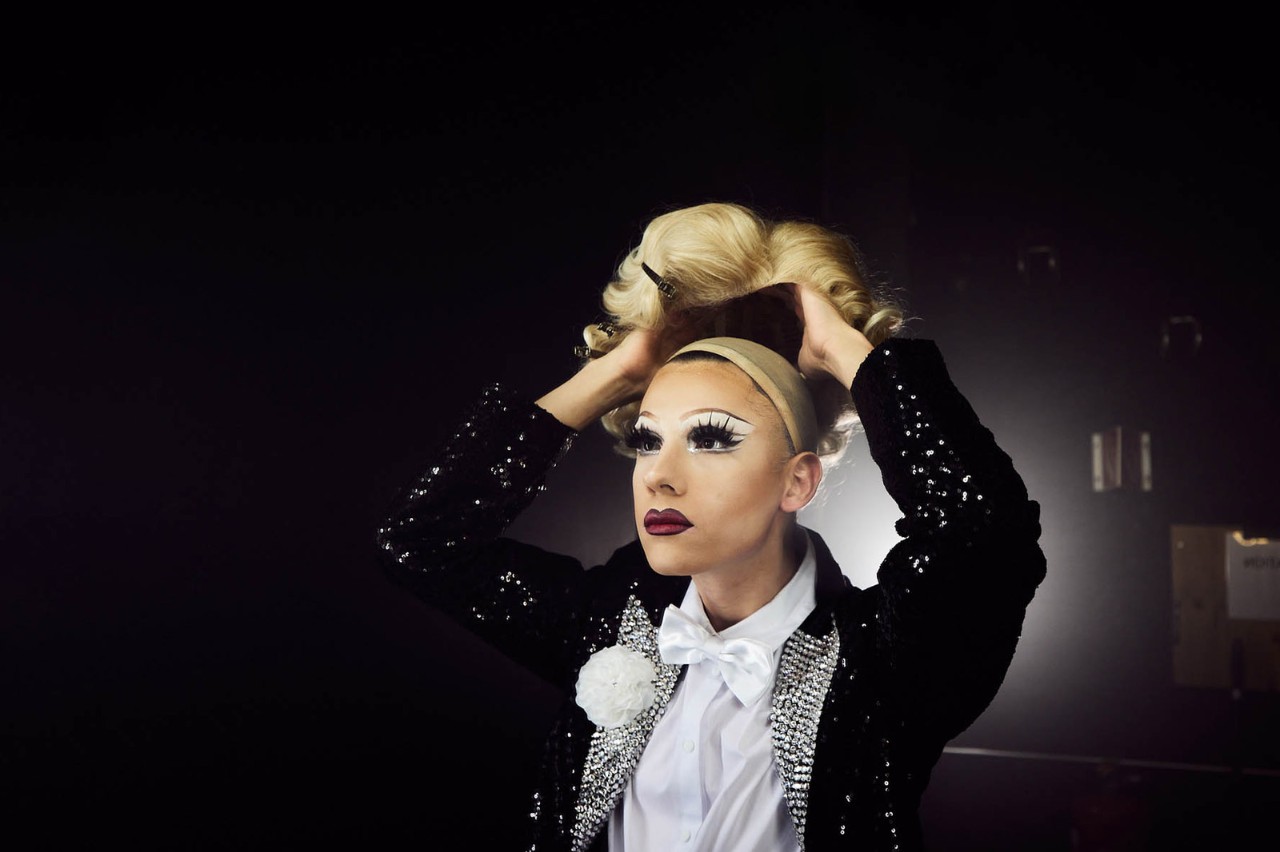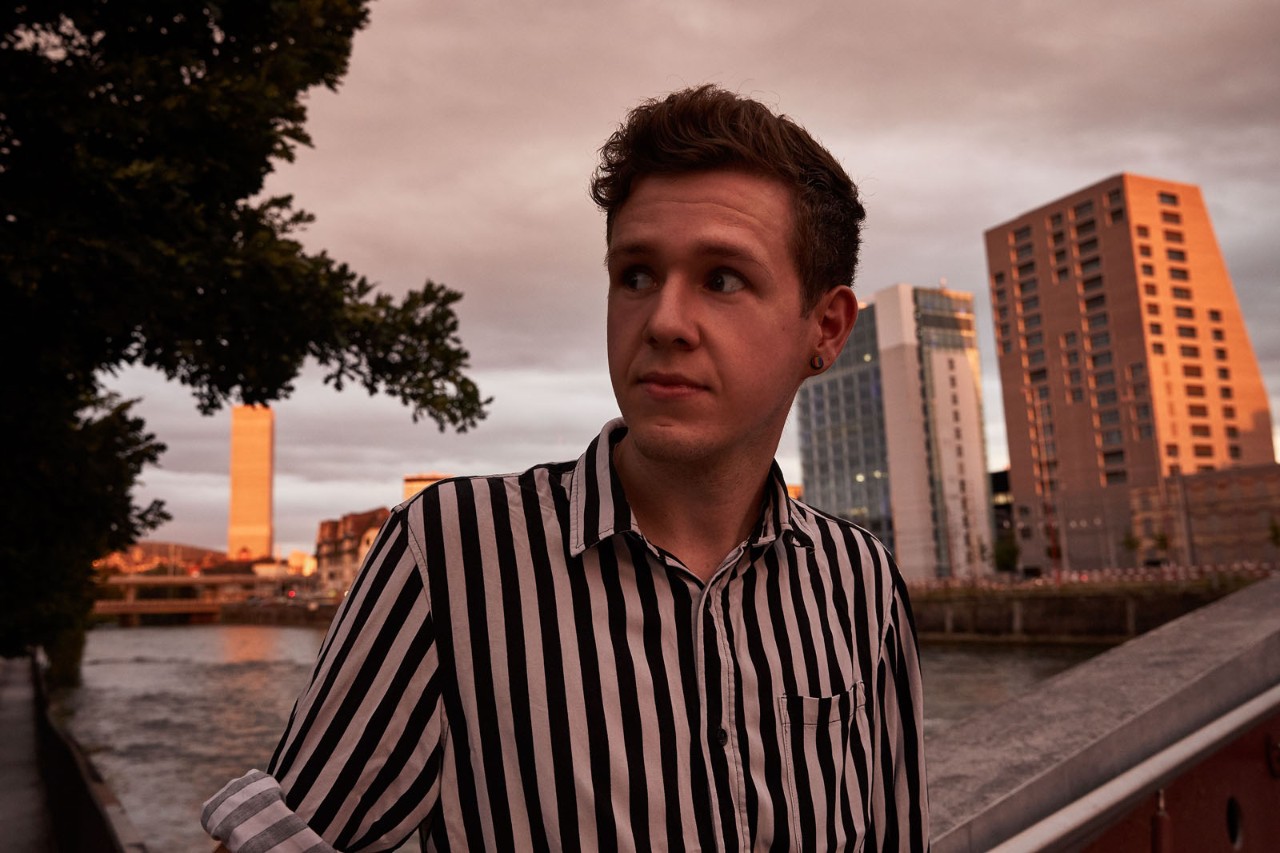Be yourself
Michel von Känel is a teacher by day and a drag queen by night. His artistic transformation into Paprika is part of his life.

As a young boy, Michel went on a trip to Disneyland Paris with his family and he loved the parade of the fairytale characters, the Disney princess and Ariel the mermaid. He was amazed by all the beautiful costumes and wigs. And Michel, the little boy, is amazed. He asked for a Barbie for his sixth birthday, staring longingly at the dolls on the shelves in Migros with his father. His dad hesitated for a moment, but then thought to himself: “At least my children don’t want to play with guns.” He just wanted us kids to be happy, says Michel von Känel today.
Michel is 24 years old. During the day he works as a secondary school teacher, and at night once a month he performs as a drag queen. He is one of around 20 active drag queens in Switzerland. For his performances, he puts on magnificent dresses, which he designs and sews himself, and he spends a long time perfecting his make-up. It takes him around three hours to transform himself into “Paprika” – a role that is a form of art and also of self-expression.
Michel lives with his parents in a small village with 1,600 inhabitants in Aargau. On the evening of his performances, he packs his costume and make-up into a suitcase. Michel now insists that the organiser arranges somewhere for him to change when he gets to a venue. He doesn’t want to be waiting alone at a station when he is dressed as a drag queen. Hate crimes against people in the LGBTQ+ community are not unknown in Switzerland. That’s why his dad has sometimes really feared for his son’s life.
Michel says that he has always felt understood by his family. His parents have been married for 30 years and they have a left-wing background. It wasn’t unusual in their house to find Barbies lying next to lego bricks. At Christmas, the family painted stage sets and made costumes. And if Michel played with dolls, his brother simply joined in. Just sometimes he would overhear neighbours, friends or relatives ask incredulously: “Michel plays with dolls?”
Drag as a statement
Although Michel was never a loner at school, he always felt that he was different. But he didn’t really know why. When he joined the drama club at school, he met men for the first time who weren’t ashamed to cry and show their feelings. At the same time, he realised that he didn’t feel comfortable around some boys in his class. They were starting to sexualise the female body. And he wasn’t remotely interested in who was kissing who. He didn’t like all the shouting and jostling and the adolescent show of power. The idea of “boys just wanna be boys” was anathema to him. “Men can pull themselves together just like everyone else,” says Michel.
Sometimes, when Michel is performing as Paprika, people grab at his foam-padded posterior and paw his body because he’s wearing a woman’s dress. Women experience this all the time, but men less so. “That’s why drag is also political,” says Michel. “It’s a statement.” He is a visible provocation for all those who have precise ideas of privilege and strength, and a figurehead for anyone who knows what it feels like to be an outsider. “The difference is that I can stop being a woman when I take off the costume.”
Michel came out as gay four years ago, first to his father, “maybe because in the years before he had said things like ‘When you bring your first girlfriend or boyfriend home…’ With that he gave us a sign that it would be OK whatever life choices we made.” His father talked to his mother, who needed time to get used to the new situation.
“Drag is a political statement. ”
Redefining masculinity
Initially, Michel’s performances were all about the costume, artistic expression, theatre, acting and telling stories. And about getting in touch with his feminine side. Sometimes he acted as a mermaid, and sometimes as an alien. Or a princess. But the drag aspect quickly became more important. “I stood there in my costume, and young people became tearful when they saw me. I gave some of them the courage to come out. And I realized: I can inspire them to show themselves as they are."
His father doesn’t have a problem with his son dressing regularly as a woman. We should accept people as they are, he says. Last year he took part in the Pride parade and has recently become involved in a small association for parents of LGBTQ+ children.
In the past, Michel’s main aim was to be seen. He craved the attention, because he tended to be quiet and shy in everyday life. But being a drag queen helped him grow as a person. “I’m stronger when I’m a woman. Many people believe that wearing drag is about wanting to be a woman, but it has nothing to do with my biological sex,” says Michel. “It’s all about strength. And this helped me, Michel, grow as a cisgender man. I am a man and, as a man, my femininity is one of my many facets. I have redefined my masculinity.”


